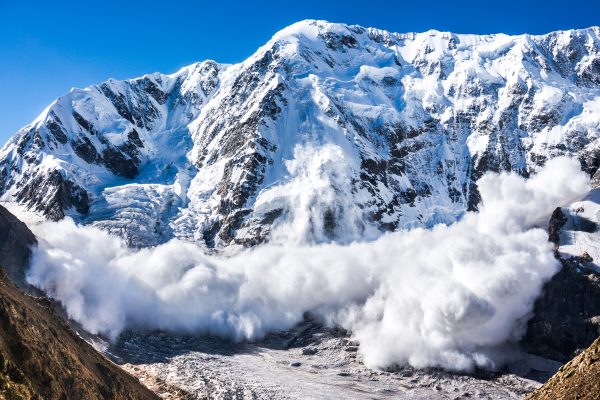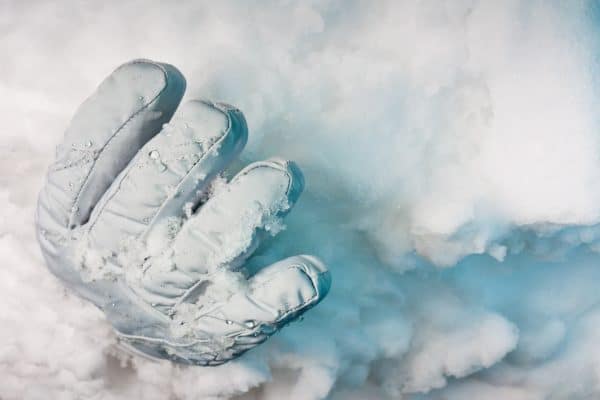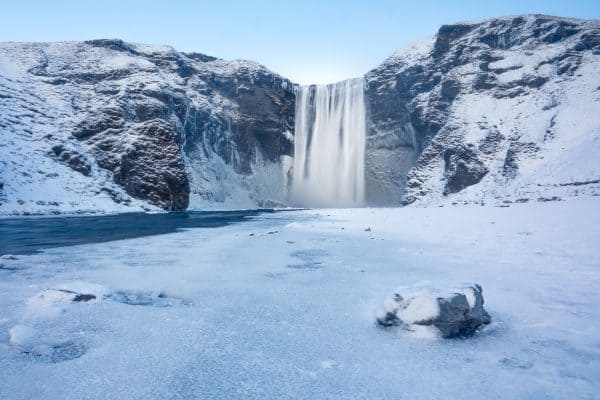Cooking outdoors during the cold season is easier with the use of portable stoves. This means you would have to use butane, but can it freeze during the wintertime? And if it does, what happens to it? We looked into what takes place when butane gets exposed to low temperatures and summarized it below.
Butane has a freezing point of -216.4 °F (-138 degrees °C), meaning it will not freeze under usual cold conditions. However, the cold can affect the performance of butane as fuel. Internal pressure keeps it in a liquid state but releases it as a gas when attached to a burner through vaporization. When the temperature gets closer to its freezing point, it has trouble vaporizing. And so, the liquid doesn't turn into gas, resulting in futile heat output.
Butane is functional in winter as long as the temperature doesn't hit its freezing point. In this post, we'll be discussing how cold the temperature needs to be for butane to freeze and what you can do to prevent it from happening. And what should you do to maintain butane's usability? Keep reading as we delve into these questions.
NOTE: WE MAY GET A COMMISSION IF YOU DECIDE TO MAKE A PURCHASE THROUGH THESE LINKS. THERE'S ADDITIONAL NO COST TO YOU. CHECK THE BOTTOM OF THE PAGE FOR MORE INFORMATION.
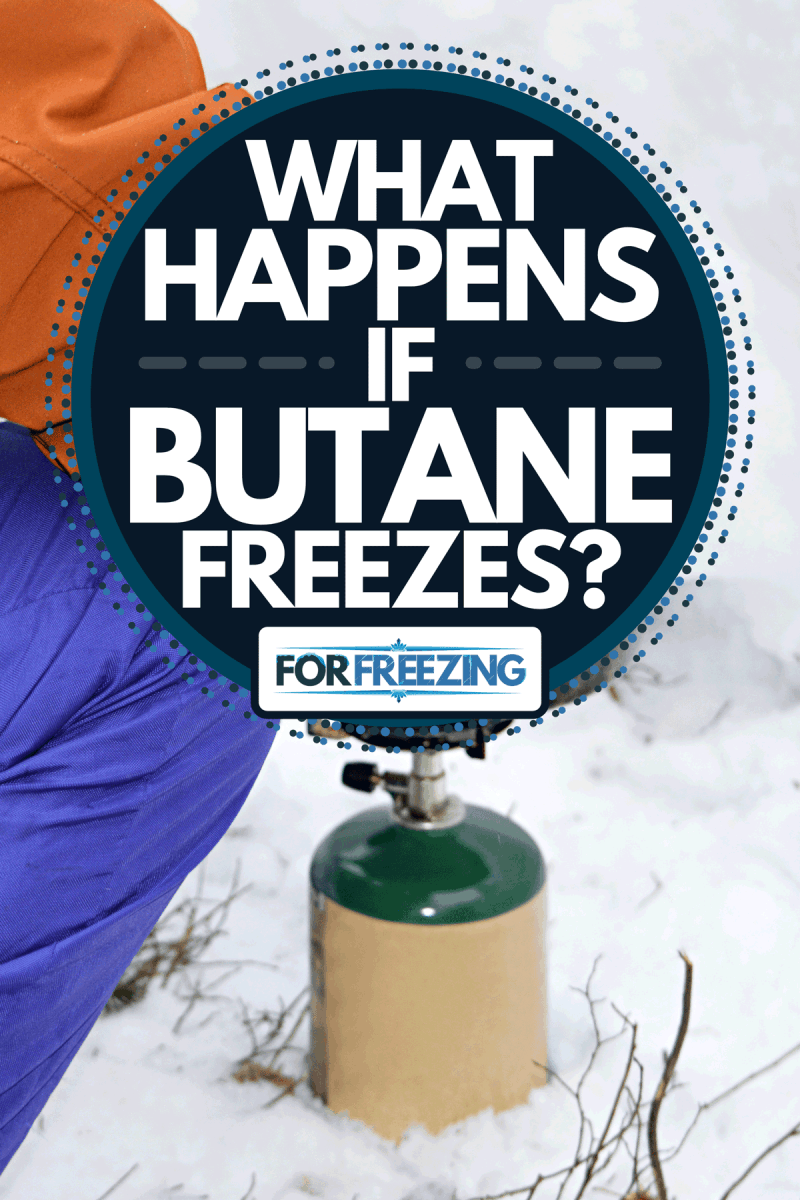
How Cold is Too Cold For Butane?
Any temperature lower than -216.4 °F (-138 °C) will be too cold for butane. It ceases to function when the temperature surrounding it exceeds its freezing point. However, butane slows down vaporization at 31.28 °F (-0.4 °Celsius), meaning conditions that go lower than 32 °F can make butane unusable.
Fuel canisters usually contain two components: butane and propane. As opposed to butane, propane will continue to vaporize in lower temperatures but tends to burn off at sub-freezing conditions. When this happens, the mixture moves towards butane, and lesser gas vaporizes.
Vaporization fuels the stove or canister, with heat playing a vital role in the mix. The can will cool as butane supplies the fuel. In addition, temperatures go as low as 32 °F or sub-freezing levels in winter. Internal pressure drops under these circumstances, stopping vaporization and failing to feed fuel to the stove.
Does Butane Freeze In Winter?
Butane rarely freezes during the winter, but it's likely to lose function in the cold. Its freezing point goes beyond the usual temperature conditions in the wintertime, averaging between 68 °F to 3.2 °F (20 to -16 °Celsius). Cans of butane are not likely going to freeze unless they are in controlled environments to achieve their freezing point.
Although butane won't freeze from the weather, it is sensitive to cold conditions. Locations that commonly experience sub-freezing winter temperatures may be dangerous to butane. The cold causes the gas to become ineffective due to lowered vaporization levels. This means a can of butane will be useless in the winter even when it's new.
How Do You Keep Butane From Freezing?
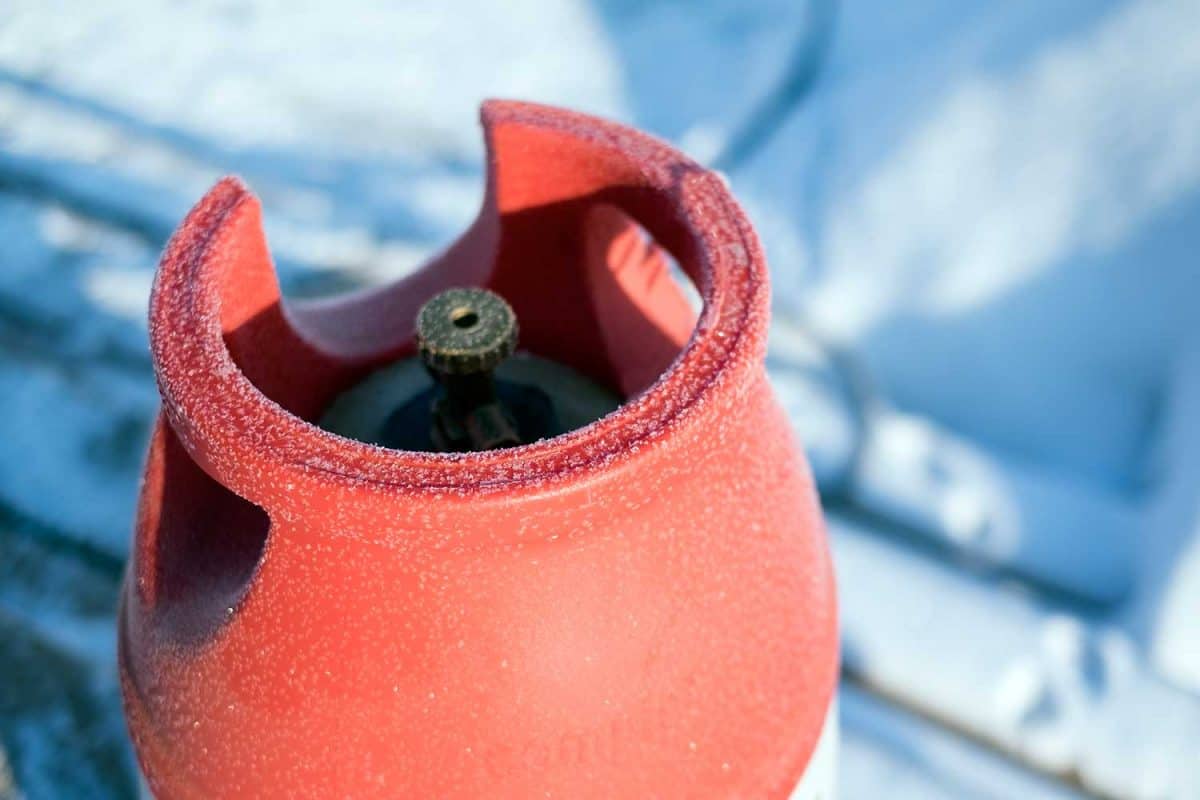
Protecting butane from severe outdoor temperatures will lessen the risk of damage from too much heat or freezing. It takes colder conditions for butane to freeze completely. During the colder days of winter, the temperature drops enough to hinder fuel production with butane.
To keep it from being affected by the cold, consider warming up the can before using it, such as by wrapping it up. Doing so balances and regulates the outside temperature of the butane can. Note that this should be done before use only, as it could be harmful once it starts producing gas.
Below are ways for you to safely keep butane during the winter:
Store Butane Correctly
Do not store butane in closed locations. It contains components that can ignite under certain conditions. Even when butane is unopened, the storage location changes the temperature around it, causing the fuel to react. When storing indoors, it's ideal for the area to be between 32 to 125 °F and with low humidity levels.
The best place to store butane in the winter is in the garage or a shed. Be sure the gas tap is completely covered to avoid dust or small objects from blocking it. Covering it also provides insulation to counter moisture forming around the can.
Ensure Proper Ventilation
Ventilation is vital when handling butane. The carbon monoxide from butane can be dangerous if it does not have room to escape. The storage location should be ventilated as a safety measure in case anything goes wrong.
Keep Away From Extreme Conditions
Compared to propane, butane is more susceptible to extreme temperatures. It can explode in the heat, especially when there are leaks, while it fails when exposed to the cold. Store it in a location where the temperature is regulated or shifts slightly rather than a place where temperature changes are drastic.
Is Butane Safer Than Propane Indoors?
Butane is safer to use indoors than propane because its properties cater to milder conditions. It has lower vapor pressure, making it suitable for indoor use. Butane exerts less pressure than propane even at the same temperature. This feature makes butane recommended for quick-cooking indoors that doesn't require lasting heat.
Even while butane is safer for indoor use, it's crucial to follow precautions to prevent accidents. It gives off carbon monoxide, causing respiratory issues and intoxication when inhaled, and is flammable. To avoid accidents from these factors, consider the safety measures as follows:
- Make sure the area is well ventilated. Open the windows and doors for better airflow.
- Position the stove close to an open window to allow gases to escape.
- If you have a fireplace, you can place it there. Be sure to open the flue.
- Keep the cooker away from other sources of heat or smoke.
- Check to see if it has an integrated cylinder. It is found inside the stove and controls the condition of butane to make it safer indoors.
Can Butane Canisters Explode?
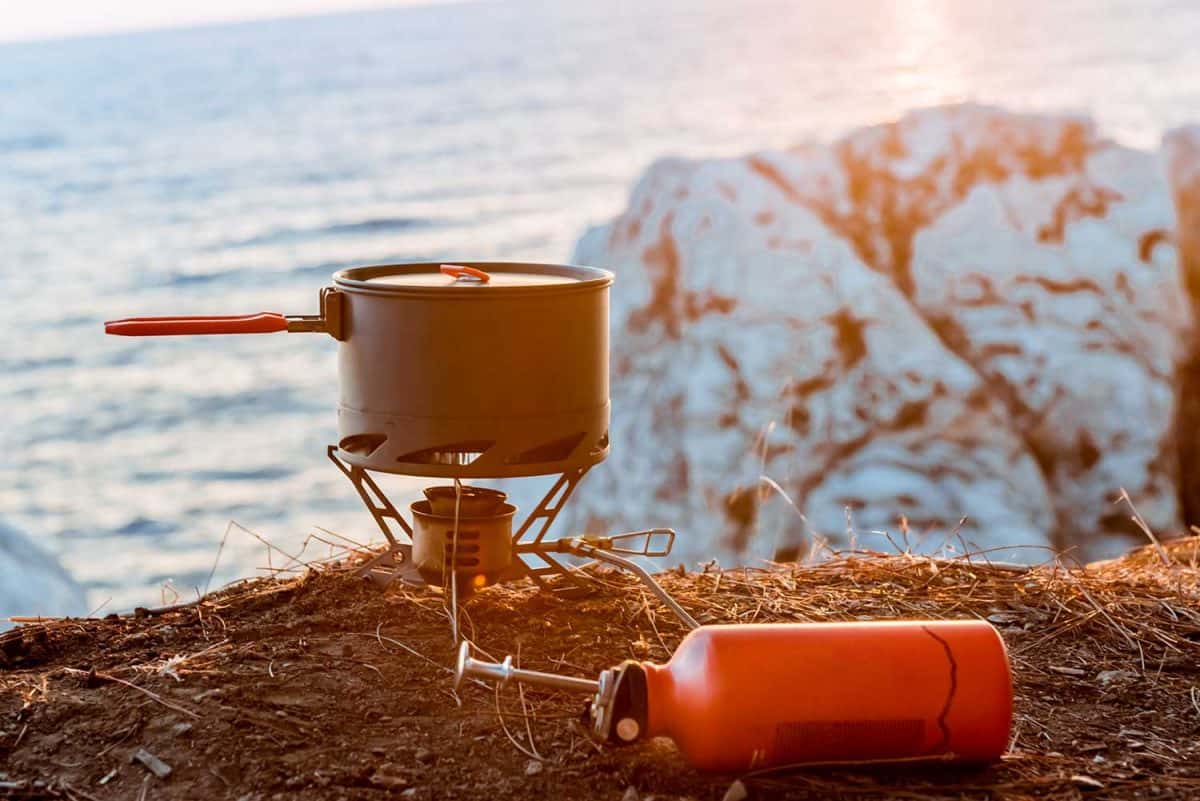
Yes, butane canisters can explode if they are incorrectly stored and used. Butane is known to be a highly flammable material because of its components. They may cause unwanted reactions from specific encounters.
Here are some of the common reasons why they explode:
Pressure Build-up
When cooking, be wary of the stove's cartridge compartment and how you place your pots or pans. If this is being blocked or covered, it causes pressure to build up inside the can. The compression of too much gas is the reason why it explodes.
Exposure To Heat
Keeping butane away from any source of heat is crucial in storing and using it. The reaction that occurs in the can of butane causes explosions. Be sure to keep them far from sources of heat or smoke, especially when outdoors. In the winter, this includes direct sunlight or near an open fire.
Leak or Puncture
An accident caused by butane leaking usually happens by chance, but it is also alarming. Once a spark forms and meets with the gas, an explosion occurs. It would only ignite where they meet unless it happens within the can or close to it. Being careful with how you handle the butane is the best way to prevent this.
Overheating
Butane is not capable of holding heat for continuous periods. When butane fuels a cooker without a break or beyond its limit, it produces more gas than it can handle. It goes through a similar process as pressure build-up, wherein the can fails to contain the compression, exploding as a result.
The Bottomline
Although butane is susceptible to severe conditions such as freezing temperatures, it doesn't often freeze. Its freezing point is much lower than average winter weather, but its performance varies depending on the surrounding temperature. For instance, it is quick to cease its function when exposed to sub-freezing levels and lower. While it usually doesn't freeze, the cold stops the conversion of liquid to gas for fuel.
Despite its sensitivity to temperature, it is good for use when it is stored correctly. Following safety measures when using butane are also necessary to prevent harm.
Check out these posts about how freezing affects other gases like sprays and fuel:

